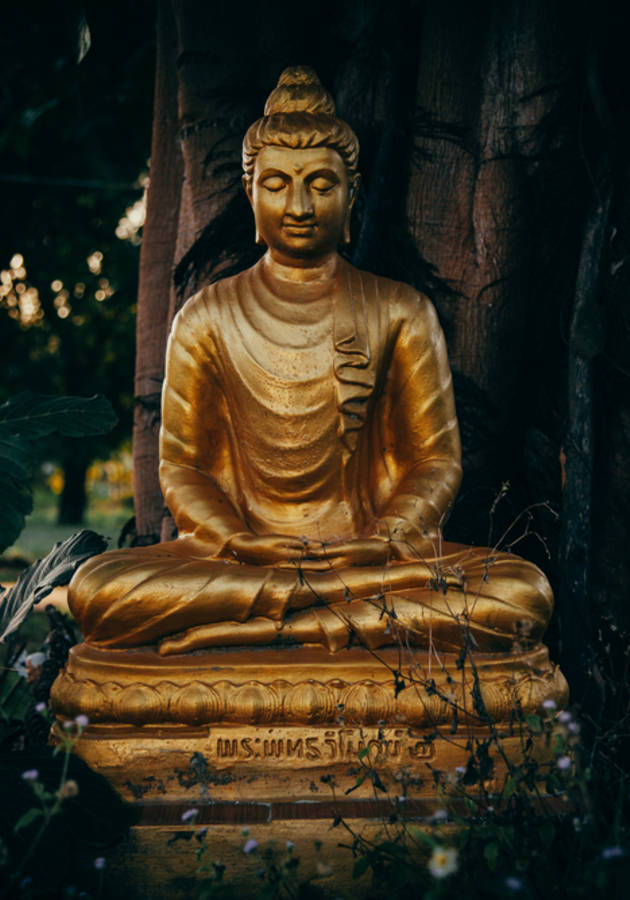A self-help book wrapped inside a fable, “The 5 AM Club” tells the story of a burned-out female entrepreneur on the verge of suicide, a depressed painter trying to understand how to fuel his creativity, and Mr. Riley, an eccentric billionaire with a desire to impart his knowledge and skillset to aspiring individuals.
The entrepreneur and the artist happen upon Mr. Riley at a personal optimization conference convened by a legendary self-help guru known only as the Spellbinder. At the end of his opening speech, however, the Spellbinder collapses on the stage, an event which leaves everybody shocked, but also draws these three disparate characters together.
Seeing how lost they are, Mr. Riley invites the entrepreneur and the painter to his beach house in Mauritius, at 5 a.m. the following morning. Little can they guess that their hesitant “yes” would mark the beginning of a captivating journey around the world and a book-length course in mastery and self-improvement. Get ready to hear Mr. Riley’s most indispensable lessons and prepare to become a virtual member of the 5 AM Club!
The five ground rules of the 5 AM club
Even before reaching Mauritius, the artist and the entrepreneur learn that Mr. Riley was a student of the Spellbinder. Moreover, they discover that the 5 AM Club – or 5AC for short – is an exclusive, imaginary and transhistorical club of early risers, whose members have included everyone from Wolfgang Amadeus Mozart to John Grisham, from Georgia O’Keefe to Ernest Hemingway and Frank Lloyd Wright. They all knew, says Mr. Riley at one place, that getting up at 5 a.m. was the best way to isolate themselves from mediocrity and achieve greatness. When everyone else is asleep, the history-makers work and create; the hours the 95% waste are the same hours that the top 5% treasure.
“Rising at 5 AM truly is The Mother of All Routines,” explains Mr. Riley. “Joining The 5 AM Club is the one behavior that raises every other human behavior. This regimen is the ultimate needle mover to turn you into an undefeatable model of possibility. The way you begin your day really does determine the extent of focus, energy, excitement and excellence you bring to it. Each early morning is a page in the story that becomes your legacy. Each new dawn is a fresh chance to unleash your brilliance, unprison your potency and play in the big leagues of iconic results.”
However, as important as getting up early is, joining Mr. Riley’s 5 AM Club requires a little time and a lot of effort. Above all, it requires full understanding of the five ground rules of the club, which the artist and the entrepreneur are handed over in the form of handcrafted golden tablets. Let’s quote them the way one would the Ten Commandments – reverentially and in full:
- An addiction to distraction is the end of your creative production. History-makers take one distraction-free hour for themselves before dawn to prepare themselves for a world-class day.
- Excuses breed no genius. In the words of the Spellbinder, “Your excuses are seducers, your fears are liars and your doubts are thieves.” Winners find ways; losers find justifications for their defeats.
- All change is hard at first, messy in the middle and gorgeous at the end. Consistency turns chaos into order and order into success. Everything that seems easy to you today was probably difficult to you yesterday.
- To have the results the top 5% of producers have, you must start doing what 95% of people are unwilling to do. This might make you a freak in the eyes of the majority of people for a while. But remember: being labeled a freak is the price of greatness.
- When you feel like surrendering, continue. Triumph loves the relentless.
The four focuses of history-makers
There is a reason why history-makers work and create when everybody else is sleeping. Simply put, they have different expectations from themselves than the majority of people, as well as dissimilar goals and objectives. According to Mr. Riley, these are the four main focuses of history-makers:
- Capitalization IQ. As eminent psychologist James Flynn discovered, history-makers are not defined by the amount of natural talent they are born into, but by the extent of the potential they actualize and capitalize on through consistency and relentlessness. Perseverance and passion are more important than genius; grit always beats gift. In the memorable remark of Mr. Riley, “It’s not the size of the dog in the fight: it’s the size of the fight in the dog.”
- Freedom from distraction. Too many people waste countless hours nowadays watching Netflix and clicking through Facebook notifications. Not the history makers. In essence, they are very simple people, purists in the beautiful sense of that word. They know that less is more and that more means chaos. That’s why they prefer to be perfect in one thing rather than mediocre in many. To zoom in a bit more, they would always choose to work on one amazing project than on a few good ones. By preferring quality over quantity, history-makers never really need to manage their time – they manage their focus instead.
- Personal mastery practice. The Spartans knew that the battle was won before the warriors walked onto the field. “Sweat more in practice, bleed less in war” – that was their warrior credo. If history-makers had one, it would probably sound a lot like that famous biblical verse: “As you sow, so shall you reap.” In other words, if you want to be an expert in something tomorrow, you must put in a lot of effort today. According to psychologist Anders Ericsson, one can even calculate the minimum amount of practice necessary for mastery: 10,000 hours, or at least two hours and 44 minutes of daily improvement on a chosen skill for 10 years. That’s precisely what the early, distraction-free hours of the day are for.
- Day stacking. As Ericsson demonstrated, doing something little by little over a period of time is more important than doing something big once in a while. That is the art of day-stacking in a nutshell. What you are doing today is what the future “you” will inherit. So, instead of pursuing your future, build it today. Remember that “each of your prized days represents your precious life in miniature.” You don’t want to wake up in 20 years feeling that you’ve lived the same week a few thousand times. To quote the Spellbinder, “Too many among us die at thirty and are buried at eighty.”
The internal empires and the habit installation protocol
There are not many who have tried to put 10,000 hours into mastering a skill. However, the real history-makers do one better: they put at least as much into becoming better human beings. They are aware that their “creativity, productivity, prosperity, performance, and impact on the planet are always a sublime expression of what’s going on inside.” So, they try to master the external world by mastering their four internal empires:
- Mindset. The psychological aspect of our being. As most self-help books will tell you, thinking positively brings positive results. But that’s only 25% of the personal mastery equation.
- Heartset. Our emotional intelligence and wellbeing. Even if you are the smartest person alive, you will achieve nothing if you are incapable of managing your own emotions.
- Healthset. Your physical health. They say that healthy people have many objectives, but ill people only one: to get better. That’s why it is very important to live a healthy life. So, eat well and exercise often.
- Soulset. Your spirituality. Don’t allow yourself to be led astray by superficial things such as material possessions. Meditate. Practice mindfulness. Find ways to feel connected to your real self and the supreme power that permeates everything.
To master these four internal empires, you have to turn your resolutions into habits. The 5 a.m. routine should help you achieve that, just as the following three values will:
- Be consistent and persistent. Victory demands both.
- Follow through. Success is the product of your ability to follow through and finish what you’ve started. So is respect.
- Don’t wear a mask. The way you’ll perform once you’re in public is the very same way you’ve practiced in private. So, to paraphrase poet Edgar Guest, be the same when you’re alone as when your every deed is known.
Now, personal discipline is a muscle: the more you stretch it, the stronger it grows. Just as well, it weakens when tired. Installing a habit successfully requires not depending on it. To achieve this, you need to tweak the four-part pattern that underlies all habits: trigger – cue – routine – reward. To adapt a new habit, you need to keep both the trigger and the reward while changing the routine. This isn’t easy. That’s why the habit installation protocol is a three-part process which lasts 66 days. During the first 22, you need to destroy your past habits. The next 22 days are reserved for the installation of the new routine. Finally, during the last stage, called integration, the new routine grows into an automatic response and becomes just as involuntary as the old one. “As it relates to becoming a member of The 5 AM Club,” advises Mr. Riley, “stick with your self-promise for at least sixty-six days. No matter what.”
The 20/20/20 formula
Simply rising at 5 a.m. will not transform your creativity and productivity by itself. The real power of getting up early really comes from the daily application of the so-called 20/20/20 Formula. “I can’t think of another ritual that has contributed to my success and well-being as much,” says Mr. Riley to the entrepreneur and the artist before explaining how the formula works.
Essentially a plan for the first hour of the day, the 20/20/20 formula, as suggested by its name, encompasses “three twenty-minute pockets to install and then practice to mastery levels.” They are:
- Move. The first 20-minute pocket – between 5 a.m. and 5:20 a.m. – is reserved for some intense exercise. This should revolutionize the quality of your days by cleansing your body from cortisol remnants, infusing you with dopamine and serotonin and kickstarting your metabolism. As a result, you will have more focus and energy and feel less stressed throughout the day. That way, you will also be far more productive.
- Reflect. The second 20-minute pocket encourages you to reflect. Reserve the time between 5:20 a.m. and 5:40 a.m. for journaling, meditation, praying, contemplation or planning. Any one of these activities should help you expand your inner serenity, develop your wisdom and boost your gratitude. Moreover, it will help you slow down in life by decreasing your reactivity and increasing your positivity.
- Grow. The final 20-minute pocket – between 5:40 a.m. and 6 a.m. – is all about growth. This is the time to review your goals for the day, read a few pages from a book or listen to an audio summary. By the end of the pocket, you should feel calmer and more confident, more insightful and far more inspired.
Final notes
Its parable-like story, its memorable protagonists, and its easy-to-digest, valuable-if-applied advice makes “The 5 AM Club” a worthy successor to “The Monk Who Sold His Ferrari” and “The Saint, the Surfer, and the CEO.”
Whoever liked those two books will almost certainly enjoy this one as well.
12min tip
Rise early. If so, by noon you will have already done more than most people will have by the end of the day – if not the week.





























